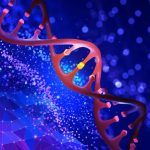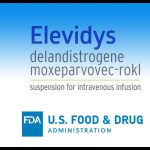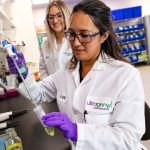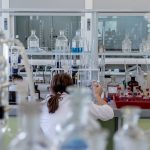Does Gene Therapy Help With Alcohol Use Disorder?

Severe Alcohol Use Disorder (AUD) is a serious and chronic medical condition characterized by a pattern of alcohol consumption that leads to significant distress or impairment. It is the most advanced and severe form of AUD, which is a spectrum of alcohol-related issues ranging from mild to severe. Severe AUD is diagnosed based on specific criteria outlined in the Diagnostic and Statistical Manual of Mental Disorders (DSM-5), a widely used guide for mental health professionals to classify and diagnose mental health conditions.
To be diagnosed with severe AUD, an individual needs to exhibit a significant number of diagnostic criteria. These criteria include elements such as consuming larger amounts of alcohol or for longer periods than intended, a persistent desire or unsuccessful efforts to cut down or control alcohol use, spending considerable time obtaining, using, or recovering from the effects of alcohol, experiencing cravings, failing to fulfill major obligations at work, school, or home due to alcohol use, continued alcohol use despite causing or exacerbating social or interpersonal problems, giving up important social, occupational, or recreational activities because of alcohol use, and using alcohol in situations where it is physically hazardous.
The severity of AUD is determined by the number of criteria met, with mild, moderate, and severe classifications. Severe AUD indicates that an individual meets a substantial number of the criteria and is experiencing a high level of impairment and distress due to their alcohol consumption. This diagnosis indicates that the individual’s relationship with alcohol has reached a critical point, requiring intensive intervention and treatment to address the physical, psychological, and social aspects of the disorder. Treatment for severe AUD often involves a combination of medical support, behavioral therapies, counseling, and lifestyle changes to help the individual achieve recovery and improve their overall well-being. In this article, we shall take an in-depth look at the use of new gene therapy for the treatment of the condition.
Can Gene Therapy Treat Severe Alcohol Use Disorder?
Yes, according to a new study conducted by researchers at Oregon Health & Science University (OHSU), gene therapy has the potential for a novel approach to treating Severe Alcohol Use Disorder (AUD). In their study, the team sought to reset the brain’s dopamine reward pathways, which play a crucial role in addiction, using a gene associated with cell growth called glial-derived neurotrophic factor (GDNF). The study, published in the journal Nature Medicine on August 14, demonstrated promising results in rhesus monkeys.
The researchers utilized a form of gene therapy previously employed to treat Parkinson’s disease. Through a surgical procedure called a craniotomy, they inserted the GDNF gene into the region of the brain associated with dopamine. This therapy effectively recalibrated the brain’s reward pathways. In the group of monkeys that underwent gene therapy, alcohol consumption dropped by over 90% compared to the control group. This finding indicates that gene therapy could be a potent tool for combating severe AUD by addressing the hijacked pleasure and reward mechanisms in the brain.
Dr. Kathleen Grant, a senior study co-author and chief of the division of neuroscience at OHSU’s Oregon National Primate Research Center, emphasized that this gene therapy would likely be considered for the most severe cases of alcohol addiction. Given that it’s an irreversible treatment, it would be reserved for those who have not responded to other therapeutic interventions.
Alcohol-related deaths are a significant public health concern, ranking as the fourth-leading preventable cause of death in the United States. With alcohol consumption on the rise, driven by numerous health problems and social issues, finding innovative treatments like gene therapy could be transformative. However, it’s important to proceed with caution, as addiction involves complex biological, psychological, and social factors. While this gene therapy shows promise for AUD, potential applications for other types of addiction would need careful evaluation and study.
The study’s findings provide hope for addressing severe AUD, but further research, testing, and clinical trials are necessary before such a therapy becomes a widely available and approved treatment option. It’s worth noting that advancements in medical science, like gene therapy, could significantly impact how we approach and treat addiction in the future.





